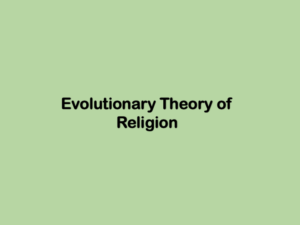Daniel 1: 5-8 Daniel Decides to Diet
In Verses 5-8, the boys from Jerusalem get new, Babylonian names and Daniel decides he is going to keep kosher.

In verses 3 and 4 of chapter 1, Nebuchadnezzar ordered the youth of Jerusalem be trained as court officials. Now the text gives us the names of four of Jewish youth: Daniel, Hananiah, Mishael and Azariah. Nebuchadnezzar also orders the students eat the same food as the king, but Daniel decides to refuse this honor, probably because it would violate the dietary laws of his faith.
Since we are going to pick up the pace and cover an entire 3 verses in this post, let’s read them all together first.
The king appointed for them a daily portion of the king’s dainties, and of the wine which he drank, and that they should be nourished three years; that at its end they should stand before the king.
Now among these were, of the children of Judah, Daniel, Hananiah, Mishael, and Azariah. The prince of the eunuchs gave names to them: to Daniel he gave the name Belteshazzar; and to Hananiah, Shadrach; and to Mishael, Meshach; and to Azariah, Abednego.
But Daniel purposed in his heart that he would not defile himself with the king’s dainties, nor with the wine which he drank: therefore he requested of the prince of the eunuchs that he might not defile himself.
Daniel 1: 5-8
Now breaking down the verses for further analysis:
The king appointed for them a daily portion of the king’s dainties, and of the wine which he drank, and that they should be nourished three years; that at its end they should stand before the king.
Verse 5
The Babylonians would train the students for 3-years, during which time they would eat and drink from the king’s kitchen. At the end of the three years, they would undergo a final test administered by Nebuchadnezzar.
Oftentimes in the Bible, a king would grant someone an honor by inviting them to eat at the king’s table. In this case, the students don’t seem to physically eat at Nebuchadnezzar’s table, but they do eat the same food and drink the same wine. Nebuchadnezzar probably saved the best food for himself, so we can assume this was viewed as a similar honor. Perhaps this was part of Nebuchadnezzar’s plan to subvert the loyalty of the students and encourage them to enjoy the Babylonian lifestyle.
In verse 6, Daniel makes his first appearance, along with three other teenagers: Hananiah, Mishael, and Azariah.
Now among these were, of the children of Judah, Daniel, Hananiah, Mishael, and Azariah. The prince of the eunuchs gave names to them: to Daniel he gave the name Belteshazzar; and the Hananiah, Shadrach; and to Mishael, Meshach; and to Azariah, Abednego.
Verses 6-7
How Old Was Daniel?
We know from Daniel chapter 10 that Daniel was alive at least until the 3rd year of Cyrus’ rule of Babylon, or 537 BC. We also know Daniel was part of the first wave of exiles taken from Jerusalem in 605 BC. That’s a span of 68 years, so it is reasonable to assume that Daniel was a young teenager at the time for Chapter 1, probably around 12 to 15-years old. That would mean Daniel lived to at least 80-year old, which is a long time, but not unheard of ancient times.
Daniel, and the other three youths, therefore, would have been born around 618 BC, toward the end of the reign of King Josiah of Judah. If you remember from the post on verse 1, Josiah is described in the Bible as the last “good” king of Judah. During his reign, Judah was purged of the worship of pagan gods and the nation returned to worship of God. Since the boys were probably from noble families, their parents would have served during the reign of Josiah, and this return to Godly values is reflected in the names the parents gave to their sons.
In Jewish tradition, God can be added to a person’s name either as a prefix or as a suffix. It can also be written as El-, referring to Elohim, one of the names for God, or as Ya-, referring to Yahweh, another name for God. Since dan in Hebrew means to judge, when it is combined with -el from Elohim, Daniel then becomes “God judges.” Likewise, Hananiah is translated as “Yahweh is gracious,” Mishael is “Who is what Elohim is?” and Azariah is “Yahweh is my helper.”
New, Babylonian Names
The Babylonians, however, changed the names of the exiles. In contrast, the new names referenced pagan gods. While scholars do not agree on the exact meanings, Belteshazzar may mean “Bel (or Belet) protect his life. Baal, or course, was a pagan god. Shadrach may mean “command of Aku” where Aki was the Sumerian moon god. Abednego may refer to Nabu, the son of Marduk and Meshach may mean “I am of little account.” These new names seem an attempt to indoctrinate the students in the religion of the pagan gods.
Renaming the youths was also another sign of dominance by Nebuchadnezzar. In the Bible, naming someone or something shows you have authority over them. We see examples of this in Genesis 2 when God told Adam to name the animals and in 2 Kings 23 when Pharoah Neco renamed Eliakim to Jehoiakim after making Judah a vassal state. In essence, by renaming the students, Nebuchadnezzar is saying he owns them. Overall, we see a pattern of Nebuchadnezzar striving to assert his dominance over the people he ruled. This desire to exert his authority and his pride in general will play a role in the events of Daniel chapter 4.
But Daniel purposed in his heart that he would not defile himself with the king’s dainties, nor with the wine which he drank: therefore he requested of the prince of the eunuchs that he might not defile himself.
Verse 8
Despite the honor of eating from the king’s food, Daniel decides to refuse. The text doesn’t specifically tell us why Daniel is opposed to eating from the king’s kitchen, other than it would defile him, but we can find some clues in the Bible.
Keeping Kosher
Leviticus chapter 11 lists various dietary restrictions. Forbidden food is listed as being unclean, and if you eat it, you become unclean in the eyes of God. A Jewish household that follows the dietary restrictions is known as keeping kosher, and since Daniel and the other youths were good Jewish boys who had been raised in devout households, they would want to keep kosher while in Babylon. Since the Babylonians were pagan and worshipped Marduk and other gods instead of Yahweh, we can assume their culinary practices did not follow the rules of kosher.
Food Fit for Idols?
In Ancient Near East culture, food was often first offered to the idols in the temple before it was consumed. Since the idol, an inanimate statue, obviously didn’t eat the food, after an appropriate period of time, the food was eaten by the priests and other government officials. We don’t know if this was the case for Nebuchadnezzar’s kitchen, but both the Old and New Testaments contain warnings against eating food offered to idols.
In Exodus chapter 15, God warns the Israelis before they entered the promised land.
“Don’t make a covenant with the inhabitants of the land, lest they play the prostitute after their gods, and sacrifice to their gods, and one call you and you eat of his sacrifice.”
Exodus 24: 15After the time of Daniel, in the New Testament, the Apostle Paul warned the church in Corinth that sacrificing to idols is the same as sacrificing to demons.
What am I saying then? That a thing sacrificed to idols is anything, or that an idol is anything? But I say that the things which the Gentiles sacrifice, they sacrifice to demons, and not to God, and I don’t desire that you would have fellowship with demons. You can’t both drink the cup of the Lord and the cup of demons. You can’t both partake of the table of the Lord, and of the table of demons.
1 Corinthians 10: 19-21
Overall, the Bible warns against eating food sacrificed to idols and suggests it may have occult connections. Obviously, Daniel would want to avoid eating food sacrificed to idols. Moreover, we can assume the Babylonian diet in general included types of foods and styles of preparation that would not be considered kosher.
Since eating from the king’s kitchen appeared to be a special honor, Daniel risked offending the king by refusing to eat. In the next verse, Daniel will attempt to resolve this difficult dilemma as he strives to live in a pagan society without compromising his religious values.
Previous: Daniel 1: 3-4
Next: Daniel 1: 9-21




